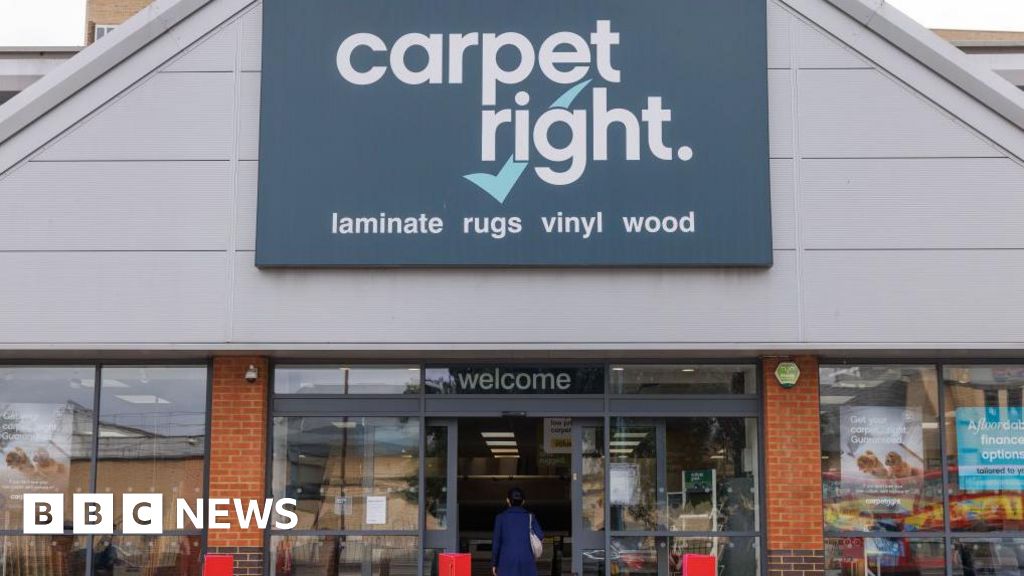Image source, Getty Images
- Author, Faarea Masud & Mitch Labiak
- Role, BBC Business reporters
-
Carpetright is on the brink of collapse, putting more than 1,800 jobs at risk.
The retailer has filed a notice of intention to appoint administrators while it tries to secure extra funding.
Advisory firm PricewaterhouseCoopers (PwC) has been lined up, but not yet appointed, to handle the administration of the company.
The company said it had “begun promising conversations with interested parties” and that its 272 stores would remain open for now.
Orders will continue to be fulfilled, but the firm will not be providing any refunds. Instead, alternative products can be offered and earlier deliveries arranged.
Kevin Barrett, boss of Nestware Holdings, which owns Carpetright and several other retailers, said its restructuring plans were hit by a slump in April trade caused by a cyber-attack.
“This has resulted in the company seeking a period of protection whilst sale negotiations proceed.”
He added that its main priority was ensuring that “as few customers and colleagues are impacted as possible”.
The firm, one of the UK’s biggest flooring retailers, has also been hit by slowing customer demand.
Retailers trying to sell big-ticket items have faced a particularly tough time as consumers focus on everyday essentials.
“The problems that Carpetright are facing show just how difficult trading conditions in retail are at present,” said John Cullen, partner and insolvency expert at business advisory firm Menzies. He added that the cyber-attack the company suffered looked like the “straw that broke the camel’s back”.
The firm has been given 10 days’ breathing space to try to find a buyer.
It is no stranger to difficult times, having gone through a form of insolvency proceedings six years ago to cut costs.
News of its impending collapse on Friday comes a day after it was reported the company had put itself up for sale.
Carpetright was founded in 1988, with its first store opening in Canning Town, in east London. It enjoyed years of success, listing on the London Stock Exchange in June 1993. It was delisted in 2020.
Today it sells not only flooring, but mattresses, curtains and blinds, garden furniture and artificial grass.
Are you personally affected by the issues raised in this story?

